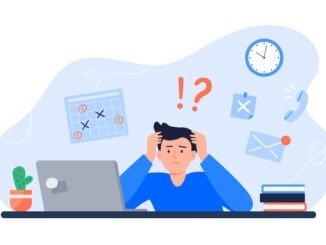
What is mindfulness – and how do you know if it is right for you?
CREDIT: This is an edited version of an article that originally appeared on Mind
Mindfulness is a technique you can learn which involves noticing what’s happening in the present moment, without judgement. You might take notice and be aware of your mind, body or surroundings. Mindfulness aims to help you:
- become more self-aware;
- feel calmer and less stressed;
- feel more able to choose how to respond to your thoughts and feelings;
- cope with difficult or unhelpful thoughts;
- be kinder towards yourself.
How does mindfulness work?
Mindfulness works by taking your focus to the present moment and away from other thoughts. The way we think, and what we think about, can affect how we feel and act – for example, if you think or worry a lot about upsetting past or future events, you might often feel sad or anxious. It is understandable to want to stop thinking about difficult things but trying to get rid of upsetting thoughts can often make us think about them even more.
The theory behind mindfulness is that by using various techniques to bring your attention to the present, you can:
- notice how thoughts come and go in your mind. You may learn that they don’t have to define who you are, or your experience of the world, and that you can let go of them;
- notice what your body is telling you. For example, you might feel tension or anxiety in your body, such as a fast heartbeat, tense muscles or shallow breathing;
- create space between you and your thoughts. This space enables you to reflect on the situation and react more calmly.
When thinking about whether mindfulness is right for you, there are some practical considerations to take into account. It might help to think about the following before you try it out:
- How do I want to learn mindfulness? There are lots of ways to learn mindfulness, and they won’t all suit everyone.
- How much will it cost? Many everyday mindfulness exercises are free to do, but formal courses, apps and learning materials may cost money.
- Can I fit this practice into my life? It is helpful to practise mindfulness regularly. Think about what times might work best for you. If you’re attending a mindfulness course, you might also have to travel to weekly sessions, which can be demanding.
Wellbeing considerations
For your physical and mental health, it might help to think about the following before trying mindfulness:
- Are the exercises safe for me to do? Some may involve sitting still for long periods of time and focusing on your breath, which might not be suitable for everyone – for example, if you have mobility issues or breathing problems. Talk to your GP or a trained mindfulness teacher if you have any concerns.
- Am I prepared to acknowledge my difficult thoughts? This can sometimes be distressing and could make you feel worse at first. If you find the exercises hard to do, then it’s best to get advice from a trained professional.
- Is mindfulness the right tool for my problems? Mindfulness tends to be quite a general wellbeing tool. If you want to work on a specific issue, you might find a more focused treatment helps more. You might, however, find it useful to try mindfulness while waiting to receive another treatment.
- Am I well enough to start something new right now? If you’re feeling very unwell, trying to learn a new skill might feel overwhelming. You might need more treatment and support in place before you can begin.


Be the first to comment